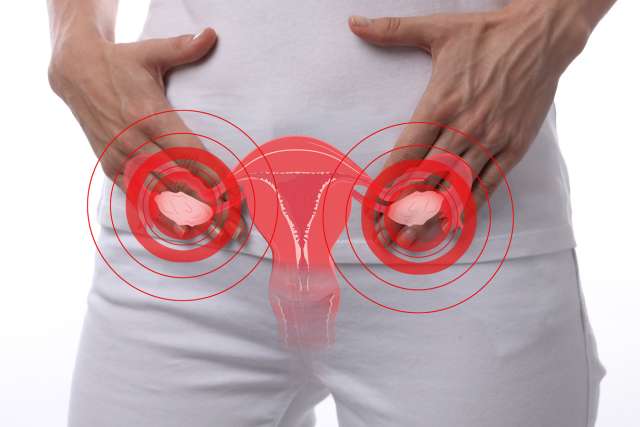Истакнути
- Преузми линк
- X
- Имејл адреса
- Друге апликације
Exploring the Link Between Polycystic Ovary Syndrome and Suicide Risk Among Women
Polycystic Ovary Syndrome (PCOS) is a common endocrine disorder affecting millions of women worldwide. While it is primarily known for its reproductive implications, recent research has shed light on a potential link between PCOS and mental health issues, including an increased risk of suicide. In this blog post, we'll delve into the complex relationship between PCOS and suicide risk among women, exploring the factors involved and highlighting the importance of awareness and support.

Understanding Polycystic Ovary Syndrome (PCOS): PCOS is characterized by hormonal imbalances, ovarian cysts, and metabolic dysfunction. It can manifest with symptoms such as irregular menstrual cycles, excessive hair growth, acne, and weight gain. Beyond its physical manifestations, PCOS can also impact mental health, contributing to anxiety, depression, and other mood disorders.
The Link Between PCOS and Suicide Risk: Recent studies have suggested a potential association between PCOS and an increased risk of suicide among women. While the exact mechanisms underlying this link are not fully understood, several factors may contribute to heightened suicide risk in women with PCOS. These include hormonal fluctuations, psychological distress related to PCOS symptoms, and the impact of PCOS on self-esteem and body image.
Psychological Distress and PCOS: Living with PCOS can be emotionally challenging due to its unpredictable symptoms and long-term implications. Women with PCOS may experience anxiety and depression related to infertility, body image concerns, and the social stigma associated with the condition. The chronic stress of managing PCOS symptoms can exacerbate psychological distress, potentially increasing vulnerability to suicidal ideation and behavior.
Addressing Mental Health Needs: Given the potential mental health implications of PCOS, it's essential for healthcare providers to screen women with PCOS for signs of depression, anxiety, and suicidal ideation. Providing comprehensive care that addresses both the physical and emotional aspects of PCOS is crucial for supporting women's overall well-being. This may involve referrals to mental health professionals, offering support groups, and incorporating lifestyle interventions that promote mental resilience.
Raising Awareness and Providing Support: Increasing awareness of the link between PCOS and mental health issues is key to improving outcomes for affected women. Education about PCOS, its potential impact on mental health, and available resources for support can empower women to seek help and advocate for their needs. Additionally, fostering a supportive environment that destigmatizes mental health challenges and encourages open dialogue is essential for promoting women's mental well-being.
Conclusion: The association between PCOS and suicide risk highlights the importance of taking a holistic approach to women's health care. By recognizing and addressing the psychological aspects of PCOS, healthcare providers can better support women in managing their condition and reducing their risk of mental health complications, including suicide. Through increased awareness, advocacy, and access to mental health resources, we can work towards improving the quality of life for women living with PCOS.
- Преузми линк
- X
- Имејл адреса
- Друге апликације
Популарни постови
7 Health Benefits of Papaya: A Nutritional Powerhouse
- Преузми линк
- X
- Имејл адреса
- Друге апликације
Unlocking the Secrets to a Healthy Heart: Tips for Improving Heart Health
- Преузми линк
- X
- Имејл адреса
- Друге апликације
Коментари
Постави коментар